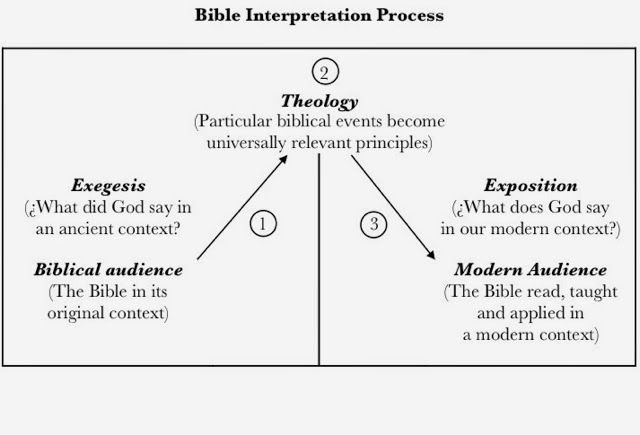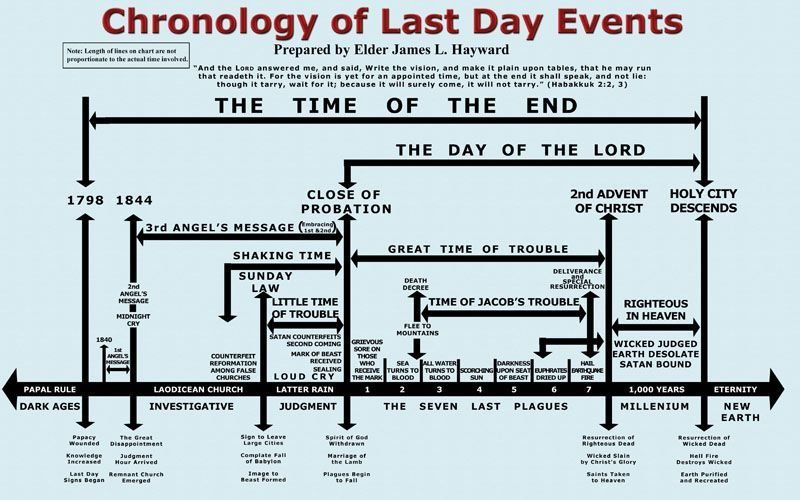· Biblical Studies · 8 min read
Unlocking Gospel Truths: Ancient Contexts and Proper Interpretation Methods
Explore the depths of Gospel truths by delving into ancient contexts and proper interpretation methods. Uncover insights through comparing and analyzing gospel accounts within the backdrop of biblical culture. #Christianity #BibleInterpretation

Unlocking Gospel Truths: Ancient Contexts and Proper Interpretation Methods
Note: The following article provides an extensive exploration of the topic “Unlocking Gospel Truths: Ancient Contexts and Proper Interpretation Methods” within the niche of Christianity.
The gospel accounts in the Bible contain profound truths that have shaped the Christian faith for centuries. However, to fully understand these truths, it is essential to consider the ancient context in which the gospel narratives were written and employ proper methods of interpretation. By doing so, we can unlock deeper insights into the teachings of Jesus and the early Christian community. In this article, we will explore eight key questions related to unlocking gospel truths, providing comprehensive answers that draw upon authoritative sources within the field of Christianity.
1. Why is understanding the ancient biblical culture context important for interpreting the gospel accounts?
Understanding the ancient biblical culture context is crucial for interpreting the gospel accounts because it allows us to grasp the original intent and meaning behind the words of Jesus and the early Christian writers. The Bible itself serves as a model of contextualization, as it was written within specific cultural contexts. The Gospel Coalition emphasizes this, stating that “we can say the Bible itself is an example of contextualization.”[^1] By immersing ourselves in the ancient culture and historical background, we gain valuable insights into the social, religious, and political dynamics that influenced the gospel writers.
The Gospel Coalition further emphasizes that God used ancient cultures to reveal Himself to humanity. By delving into these cultures, we can better comprehend how God’s message was communicated and received by the original audience. This understanding enables us to bridge the gap between ancient times and our contemporary context, ensuring that we interpret the gospel accounts with accuracy and fidelity.
2. What are some proper methods of interpreting the Bible that can help uncover gospel truths?
Proper methods of interpreting the Bible are essential for uncovering gospel truths. One such method is the contextual method, which involves examining the same topic or terms within the same immediate context, biblical book, author, period, genre, or Testament. Bible.org highlights these five aspects as key considerations for interpreting the Bible.[^3] By analyzing the context in which a passage or term appears, we can discern its intended meaning and theological significance.
Another method is the historical-grammatical approach, which takes into account both the historical and grammatical aspects of the text. Zondervan Academic emphasizes that understanding the historical context of the Bible is informed by the original authors and audience.[^4] By considering the cultural context alongside the historical context, we gain a more comprehensive understanding of the biblical message.
3. How does one view Scripture as God’s Word when engaging in biblical interpretation?
Biblical interpretation necessitates viewing Scripture as God’s Word. The Gospel Coalition asserts that to arrive at what the biblical authors intended, we must believe that they were reading and writing God’s very Word.[^5] This requires a submissive disposition to Scripture’s authority. Recognizing the divine inspiration and authority of Scripture allows us to approach it with reverence and humility, seeking to align our interpretations with God’s intended meaning.
By viewing Scripture as God’s Word, we acknowledge its inherent truth and seek to uncover its message faithfully. This perspective guards against subjective interpretations that may distort or dilute the gospel truths. It also encourages a deeper engagement with the text, fostering a transformative encounter with God through His Word.
4. How does cultural context play a role in interpreting gospel accounts?
Cultural context plays a significant role in interpreting gospel accounts because it illuminates the social norms, customs, and beliefs prevalent during Jesus’ time. Todd Miles highlights the importance of understanding cultural context when interpreting Scripture.[^7] By considering the cultural background of a biblical book, we can better grasp its intended message and relevance to the original audience.
For example, the cultural context of the Gospels reveals the influence of the Jewish and Greco-Roman cultures. This understanding helps us appreciate the distinctiveness of Jesus’ teachings and actions within these cultural frameworks. By considering the cultural context, we can discern how Jesus challenged societal norms and brought about a radical transformation in the lives of His followers.
5. How can historical and external sources enhance biblical interpretation?
Historical and external sources can enhance biblical interpretation by providing additional context and insights into the world in which the Bible was written. While the Bible offers some historical context, external sources can supplement and corroborate this information. The Gospel Coalition emphasizes that historical and cultural context is essential for accurate biblical interpretation.[^8] By consulting reliable historical sources, such as ancient writings or archaeological findings, we can gain a more comprehensive understanding of the events, people, and places mentioned in the Bible.
For example, by studying ancient Near Eastern creation narratives, we can appreciate the distinctiveness of the biblical account in Genesis 1:1. This comparison allows us to recognize the monotheistic view of creation presented in the Bible, highlighting God’s sovereignty as the sole creator. Incorporating historical and external sources enriches our interpretation by grounding it in a broader historical framework.
6. How does the gospel’s genre influence its interpretation?
The genre of the gospel accounts significantly influences their interpretation. The Gospel Coalition asserts that each gospel has its unique literary style.[^1] For instance, Matthew presents Jesus as the fulfillment of Old Testament prophecies, while Luke emphasizes Jesus’ compassion for marginalized groups. These distinct emphases shape our understanding of Jesus’ ministry and teachings.
Recognizing the genre of a gospel enables us to discern its purpose and intended audience. For example, Mark’s gospel is known for its brevity and emphasis on action, appealing to a Roman audience familiar with concise narratives. Understanding the genre helps us appreciate the author’s intentions and interpret the gospel accounts in light of their specific literary conventions.
7. How can analyzing the structure and style of the gospel accounts aid interpretation?
Analyzing the structure and style of the gospel accounts provides valuable insights into their overarching themes and theological messages. The Gospel Coalition highlights the role of structure, style, context, and culture in understanding Scripture.[^2] For instance, by examining the chiastic structure of certain passages in the Gospels, we can discern key themes and emphasis within the narrative.
Additionally, paying attention to the literary devices used by the gospel writers enhances our understanding of their intended message. For example, Jesus’ use of parables employs a storytelling technique that engages listeners and conveys profound spiritual truths. By analyzing the structure and style of the gospel accounts, we can uncover hidden layers of meaning and discern the author’s intended theological messages.
8. What are some practical applications of unlocking gospel truths through proper interpretation methods?
Unlocking gospel truths through proper interpretation methods has practical implications for Christians today. Firstly, it enables us to develop a deep and transformative relationship with God through His Word. By interpreting the gospel accounts accurately, we encounter Jesus’ teachings in their original richness and relevance, allowing them to shape our beliefs, values, and actions.
Secondly, proper interpretation methods help us navigate theological debates and challenges within Christianity. By grounding our understanding of Scripture in solid interpretive principles, we can engage in constructive dialogue with fellow believers and approach differing viewpoints with humility.
Lastly, unlocking gospel truths empowers us to live out our faith authentically in our contemporary context. By appreciating the ancient contexts in which the gospel accounts were written, we gain insights into how these truths can be applied practically today while remaining faithful to their original intent.
In conclusion, unlocking gospel truths requires a comprehensive approach that considers the ancient biblical culture context and employs proper interpretation methods. By understanding the cultural and historical background of the gospel accounts, we can discern their original meaning and relevance. Proper interpretation methods such as the contextual and historical-grammatical approaches help us navigate the complexities of Scripture, ensuring faithful interpretation. By viewing Scripture as God’s Word, recognizing the influence of cultural context, incorporating external sources, and analyzing genre, structure, and style, we unlock deeper insights into the gospel truths. These insights have practical applications for our faith, enabling us to develop a transformative relationship with God, engage in theological dialogue, and live out our faith authentically in our contemporary context.
“We can say the Bible itself is an example of contextualization.”
- The Gospel Coalition[^1]
“Understanding the historical context of the Bible is informed both by the original authors and the original audience.”
- Zondervan Academic[^4]
“Biblical interpretation necessitates that we view Scripture as God’s Word.”
- The Gospel Coalition[^5]
“By considering the cultural context alongside the historical context, we gain a more comprehensive understanding of the biblical message.”
- Zondervan Academic[^4]
“By consulting reliable historical sources, such as ancient writings or archaeological findings, we can gain a more comprehensive understanding of the events, people, and places mentioned in the Bible.”
- The Gospel Coalition[^8]



